10 SEO Myths About WHMCS • How Not to Promote a Hosting

It is no secret that WHMCS community is obsessed with SEO. In spite of this, ranging from WHMCS staff to developers and providers, no one really understands search engine optimization and myths keep popping up.
I don't want to sound presumptuous, but in this community no one really knows what is SEO. I read nonsense from multiple sources and I can't stop facepalming.
We have developers promoting extinct SEO tactics and utterly useless modules. Providers believing they can rank on the first page of Google with a bunch of meta tags. And lastly WHMCS staff that lives on the other side of SEO world.
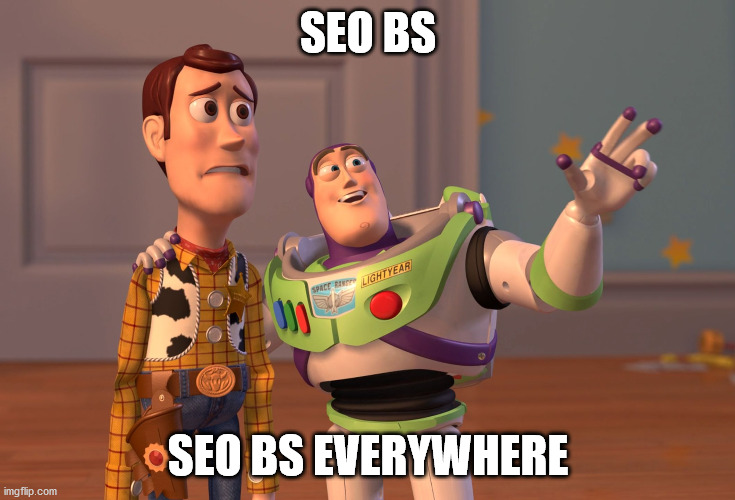
Enough is enough. In the following chapters I'm going to pull a thorn from my side. Let me start this right now.
99% of SEO modules for WHMCS are garbage. Sorry if this offends anyone but after so many years of rubbish someone's got to say it and I'm speaking with knowledge of the facts.
This website is powered by WHMCS and has SEO in place. Here is its SEO Health Score by ahrefs.com, an industry-leading SEO tool that runs on big data. On a 100-point scale it totals 97. Not even WordPress ranks this high.
On the contrary a typical installation of WHMCS ranks around 60. How is it possible? I spent one and a half year fixing this software. I made it creating Mercury, a module for WHMCS developed with SEO in mind.
If this doesn't impress you, I have also increased traffic by 462% in 8 months. No other self-proclaimed SEO module can reach such goals. Not even remotely. It's like comparing a potato with car.
Sorry if I have been a little too long but showing numbers and a case study is fundamental. Especially because no one in this community has ever achieved anything good with SEO.
Nevertheless, people with limited or non-existent SEO knowledge continue selling useless modules and writing articles on the topic. Please, don't talk about things you know nothing about.
Here's a list of SEO myths that you should never follow in the process of running a hosting business. You may also like my collection of web hosting cliches we see all the time.
Are SEO Friendly URLs Important?

There has always been a lot of debate on SEO Friendly URLs. People go crazy for them as if they are made of gold. Many think, wrongly, that is all about rewriting the URL in the address bar and wait for something magical to happen.
This is a colossal oversight. Let me put an end to this. SEO URLs are a minor ranking factor.
"Minor" means they do not have a major impact on page's ability to rank. You won't be first on Google because of a beatutiful URL in the address bar. Improvements are insignificant but there's more.
From an SEO perspective WHMCS is terrible. It has known issues with duplicate content that automatically nullifies any attempt to gain something from search engine optimization. It also prevents Google from indexing multi-language pages (more on that later).
Given the situation, on what grounds can SEO help with rankings? It would be like planning the purchase of a TV in the middle of Amazon rainforest. Good luck finding electricity.
As you can see I'm using SEO Friendly URLs on this website. Ironically, even if I own the only true SEO module for WHMCS, some people complain that I left the ID in the URL (the /37/ in the image below). They say this is not good for search engines.
Let's go straight to the point:
- SEO URL is a minor ranking factor
- Realistically speaking, the ID in the URL represents an even smaller minor factor
- The ID is there for a reason namely avoid naming collisions, duplicate content and to offer protection from black hat SEO. All things that very few people understand
In conclusion, if you want to start SEO, my advice is to leave URLs as the last thing to do. First focus on things like page title. Unlike SEO Friendly URLs, titles are easy to write but in the same time have an high impact on rankings.
Writing Meta Description and Meta Keywords
Here we go again with another SEO legend about METAphilosophy. Gazillions of modules allow to write meta description and meta keywords. While it's true that writing effective meta descriptions helps, there are a few things to consider:
- Meta description is not a ranking factor. It doesn't affect your rankings but CTR (click-through rate)
- WHMCS limitations regarding multi-language and URL canonicalization, make meta tags useless
It's the same principle seen for SEO Friendly URLs. Before you start SEO, WHMCS requires deep structural changes. Unfortunately, many still think that meta tags can help them to rank higher on Google.
The root of the problem is that WHMCS community thinks of SEO as a sort of checklist. Meta description? Check. Meta keywords? Check. Meta Lasagna? Why not. All the meta tags in the world can't help you ranking higher!
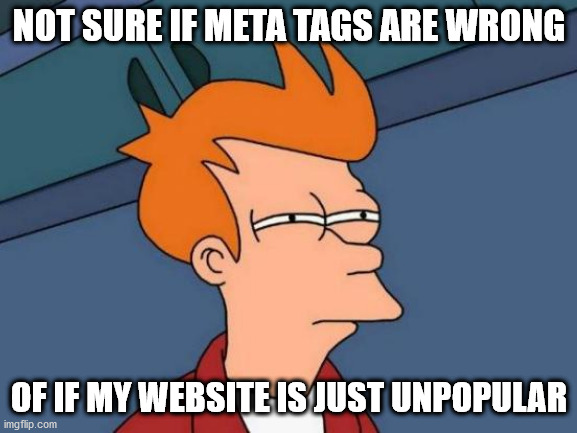
Think about it. If the key to success on the SERP (search engine result page) was filling a bunch of tags with text, everyone would be first on Google. Back to WHMCS, this software nullifies any effort because:
- Prevents Google form indexing multi-language pages
- Causes duplicated content
- Wastes most of your crawl budget on pages that serve no use
As I said earlier, WHMCS is terrible from an SEO perspective. It leaves no room for decent ranking improvements. Before you can start doing SEO, first you need to address all the weakness of this software.
Bonus tip: Meta keywords has been deprecated more than a decade ago.
How Long Does SEO Take To Start Working?
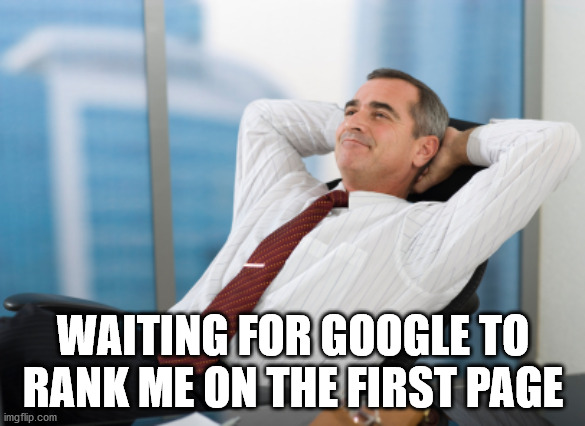
You just finished writing titles and meta descriptions for all pages. Now you can sit back and relax with your cup of coffee. Wrong! If it were easy, everyone would be ranked on the first page.
SEO is a marathon not a sprint. It usually takes 8 months before efforts start giving results. I've witnessed firsthand its transformative power but hold on a second. SEO serves no use if your site lacks high-quality and fresh contents. You need to write a lot!
Before Google thinks about giving top spots in the SERP, it must establish your site fullfills E-A-T criteria:
- Expertise. Having a high level of knowledge or skill in particular field
- Authority. Your online reputation especially among other experts
- Trust. Transparency, accuracy of contents
In other words, you need to publish great articles consistently and update old ones regularly.
For the avoidance of doubt, I underline that reposting articles found on the internet doesn't help. Google loves content variety and punishes websites that copy contents changing a word here and there.
What Is Black Hat SEO?
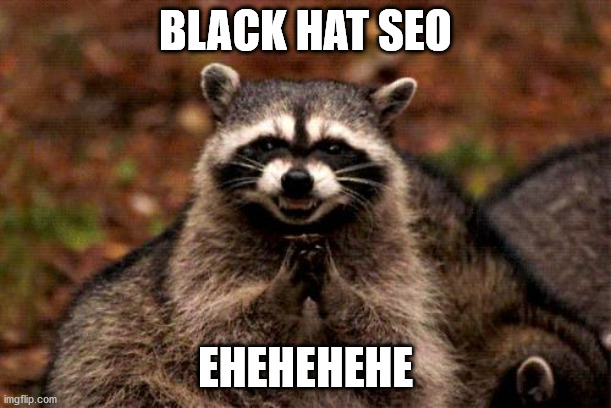
Back hat SEO refers to a set of practices used to increase rankings through activities that violate search engines rules.
Let me say that not all these techniques are put into practice deliberately. Some people, especially ones with limited SEO knowledge, may find themselves unknowingly violating rules in various ways:
- Keyword stuffing. Loading pages with numerous keywords aiming to manipulate Google
- Creating multiple variations of the same page (eg. Hosting New York, Hosting Rome)
- Doing content spinning
With this in mind, if you don't want penalties from Google, stay away from black hat world. Recovering your lost rankings would be tough. Google takes any attempt to cheat very seriously.
Building Backlinks via Blog Commenting and Forums

One of the most important ranking factor are backlinks. The more backlinks you gain, the higher you'll rank. I'm talking about backlinks that come from authoritative websites. Bad ones produce the opposite effect.
Having said that, some people deliberately link to their websites on forums and comments in the attempt to build backlinks. This is a bit embarrassing. Even some of our competitors do this in our comments section.
If you've done it in past or if you are still doing it, just stop. This "technique" no longer works since 2005. Let me introduce you nofollow attribute.
Any forum, blog and website that allows commenting, automatically adds nofollow to links. By doing this, the backlink doesn't pass SEO juice (page rank). It's true that visitors can still and land on your site but since when spamming links on the internet is considered a good strategy?
What Is Negative SEO?
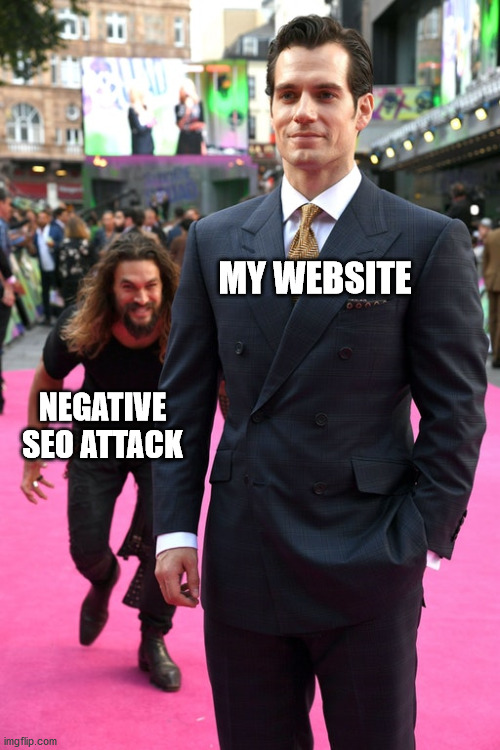
Think of SEO as a bidirectional process. That's not all about writing contents and make them appealing to search engines. There's more you need to take care of. Let's talk about SEO defense tips.
It will probably surprise you to hear that you can be victim of SEO attacks. Every day unethical competitors and lamers perform negative SEO attacks against target sites aiming to kill their rankings.
Don't worry if you didn't know anything about that. Most of the times people realize they are victim such attacks only when they start SEO. Before that, attacks fly under the radar since no one is looking for them.
The most popular attack travels via spammy backlinks. We receive them on our site regularly almost on a daily basis. We even discovered a competitor performing SEO attacks against us but I digress.
Learning how to protect against them is crucial. If you don't do that, you undermine SEO efforts since you are playing with deadweight. In the long run you could also be hit by ranking drops.
p.s. We are writing a detailed post where we describe how neutralize negative SEO attacks. Stay tuned.
Not All Backlinks Are Equal
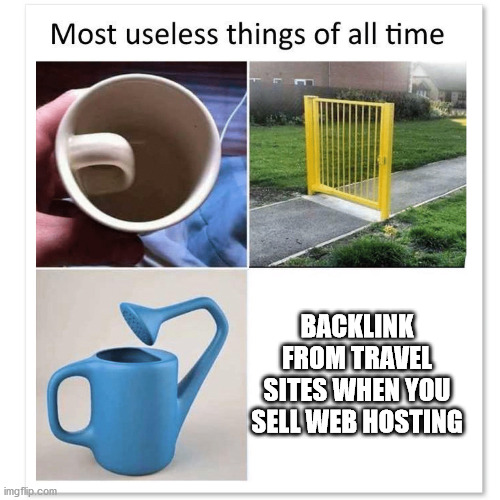
In the previous chapter, I stressed the importance of disavowing low-quality backlinks since they can sink your rankings. The same treatment must be reserved to ones that add no value to your website.
Not all backlinks are equal. Before you uncork a bottle of champagne because of a new backlink, you should consider whether it is suitable for you website. You should disavow it when:
- It comes from a website not in your target, country or language
- You received it by mistake or has low-quality profile (low page rank)
- It is "unnatural". A link from a travel site when you sell web hosting is definitely out of place
In essence, all your backlinks must sound natural and organic. Not scripted or off topic. In this case page rank fades into the background.
Dangers of Link Schemes

If you are thinking of joining programs that exchange backlinks to increase rankings, think twice. You will get the opposite result. Same goes for buying links from "toxic" sources or that don't look organic.
It doesn't necessarily happen all the times, but Google could hit your site with its banhammer. Any link intened to manipulate site's rankings can result in your site beign given a penalty. In such cases you can expect ranking drops that can last up to several months or years.
Do Sitemaps Help Ranking?
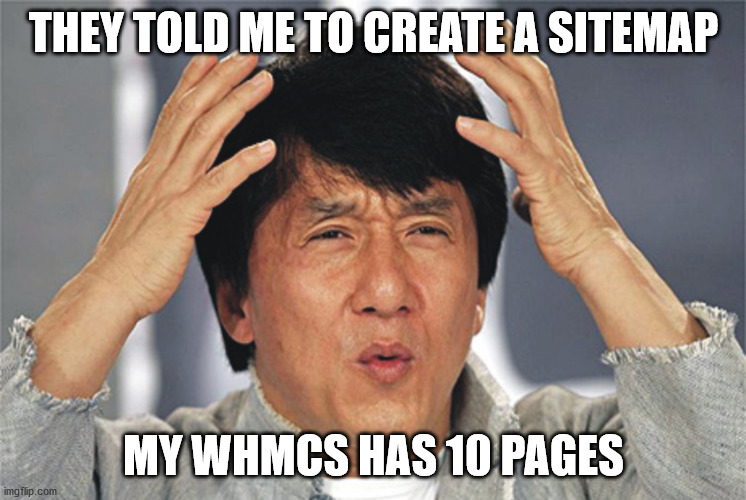
Some SEO legends persist and seem immortal. That's the case of sitemaps.
They're not very popular among WHMCS community but from time to time the myth strikes again. People bring out the argument that sitemap would boost rankings which is simply untrue since the sitemap:
- Is not a ranking factor
- Doesn't go well with SEO weakness of WHMCS
- 99% of the times serves no purpose
Google loves freshness of contents and the sitemap assists crawlers in faster indexation. It tells Google where is your fresh content (new or recently updated pages). Having said that, bear in mind that pointing search engines at a page doesn't necessarily mean you get your page indexed.
Now let's talk for a moment about the average installation of WHMCS focusing pages. In the table below I analyize them trying to understand if there's any SEO potential. I'm not listing pages that require login since crawlers can't "see" and index them.
| Page | Indexability |
|---|---|
| Home page |
Having a nice home page surely helps to attract visitors but to the eyes of Google that's just a static page that rarely gets updated. It is not even hard to find so having it in the sitemap is negligible. |
| Login, Register, Forgot Password, Contact us, Affiliates |
Service-pages are not that interesting. They are as static as stone and don't provide any useful information. A page with a form is not material for SEO and doesn't interest Google. |
| Announcements, Knowledge Base, Network Status |
Even if you have announcements and articles in KB, it doesn't necessarily mean that search engines are going to value them. Let me give you two examples:
Such contents are not so interesting for search engines but there's more. As I said numerous times, WHMCS doesn't go well with SEO. This is particularly true if you maintain articles in multiple languages. In this case, the sitemap doesn't help since crawlers can only "see" your website in default language. |
| Cart |
The limited use of HTML tags combined with poor descriptions and duplicate content, make this page painful to watch for search engines. The page is embarrassing all round. |
| Custom pages |
Probably you created tens of spectacular pages to describe your products to potential customers. That's fine but they don't need to be in a sitemap. Like home page, we are talking about static pages that rarely change over time. They're not sitemaps material. |
In conclusion, WHMCS has about 10 publicly accessible pages. Do you really think that Google needs your help to find such a small amount of pages most of which don't even change?
If your site doesn't have a blog or any valuable dynamic content, there isn't much material for crawlers. In this case having a sitemap is one of the last thing you should focus on.
In case you didn't know, our module Mercury integrates a sitemap generator that works for multi-language pages.
Using Article Spinners
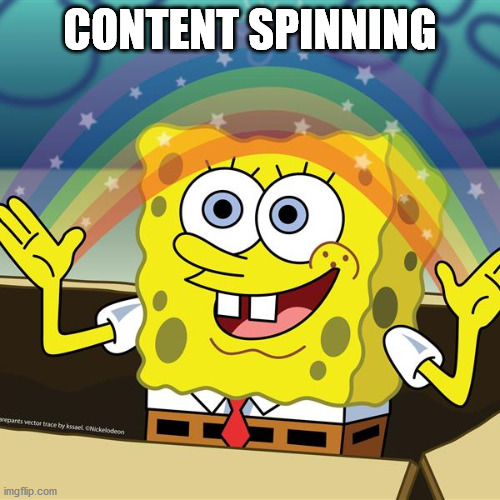
Content spinning or article spinning is the "art" of rewriting an article enough so that Google thinks it's a different article. If you are trying to kill the ranking of your website, you should definitely give it a try.
I'm sorry if this hits close to home but this is a pretty common practice that can occur in multiple ways:
- Stealing contents from other webistes changing a few words here and there
- Buying premade articles that already appear on multiple websites
- Creating multiple versions of the same article attempting to trick Google
In a nutshell, if the article appears on multiple websites you can expect penalties. It doesn't matter if you spent time changing some words and phrases here and there. Google hates cheats and pursuses content spinning. Below you can see an example of this "technique".
The internet is full of text spinners that generate "unique" contents trying to trick crawlers. Attempting to cheat Google's algorithm sooner or later will only backfire on you. Recovering from a penalty for this kind of violations is hard and can take years.
Having said that, I understand that many web hosting providers use premade knowledge base articles. There's nothing wrong with that but bear in mind you must take some precautions. Make sure to read SEO implications of Using Premade KB.
This gives me the opportunity to remind you that you should write contents for humans and optimize them for Google. Focus on your audience. Don't write with Google's ranking algorithm in mind.








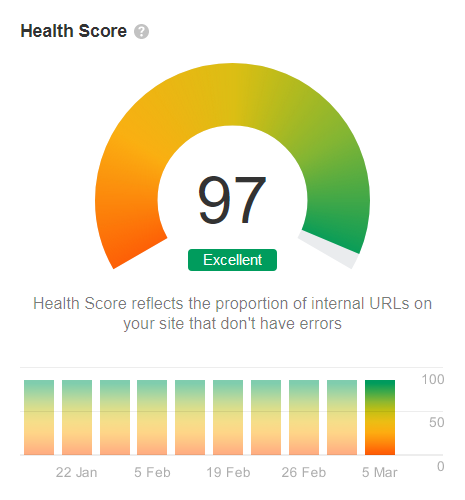



Comments (0)